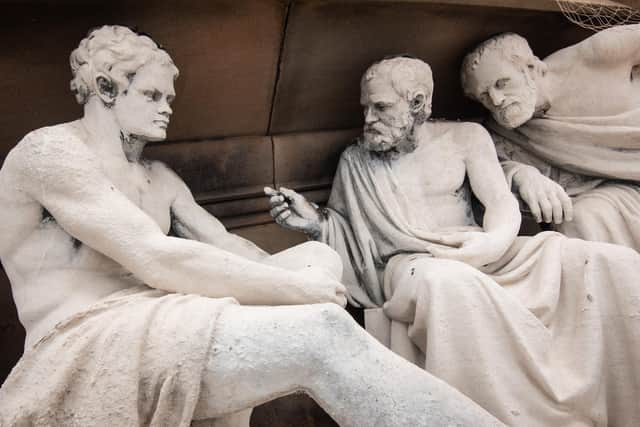Survey by Scottish academics finds classism in the study of Classics
A new survey led by a team of academics from Scottish universities has laid bare the class divide in the study of Classics.
The group surveyed more than 1,200 UK classicists from undergraduates to professors, including school teachers. It found those with managerial and professional backgrounds were “heavily overrepresented” among Classics students, reaching about 70 per cent among academic classicists and Classics teachers, compared to 37 per cent in the overall workforce.
Advertisement
Hide AdAdvertisement
Hide AdRepresentation from working-class backgrounds declined steadily through the senior academic ranks, to just 11 per cent among professors, compared to 82.5 per cent from managerial and professional backgrounds.


The Class in Classics Report 2024 is thought to be the first of its kind produced in UK higher education. The survey involved academics from Edinburgh and St Andrews universities, sponsored by the Network for Working-Class Classicists and the Council of University Classics Departments.
It made nine recommendations to close the class gap in Classics, which traditionally involves the study of classical Greek and Roman literature and language.
They include pushing for greater teaching of Classics in schools, improved collection of demographic data, and an overhaul of EDI [equality, diversity and inclusion] initiatives.
The study concluded: “Working on this report about class and socio-economic inequality in Classics has been a sobering experience. Although the results did not surprise us, it was eye-opening to read so many responses that set out so clearly how classist and exclusionary our discipline can be.
"The barriers which prevent working-class students from accessing and progressing in Classics are vast. They are structural, financial and cultural; they involve attitudes, expectations, and overt as well as hidden behavioural norms.
"It has also become painfully clear that the problem of class intersects with other axes of exclusion such as gender identity, sexual orientation, race/ethnicity, and disability.
"These issues intersect and often overlap with class to such an extent that it is – or should be – impossible to talk of equality, diversity and inclusion without talking about class. EDI policies that ignore class are thus doomed to fail.”
Comments
Want to join the conversation? Please or to comment on this article.
